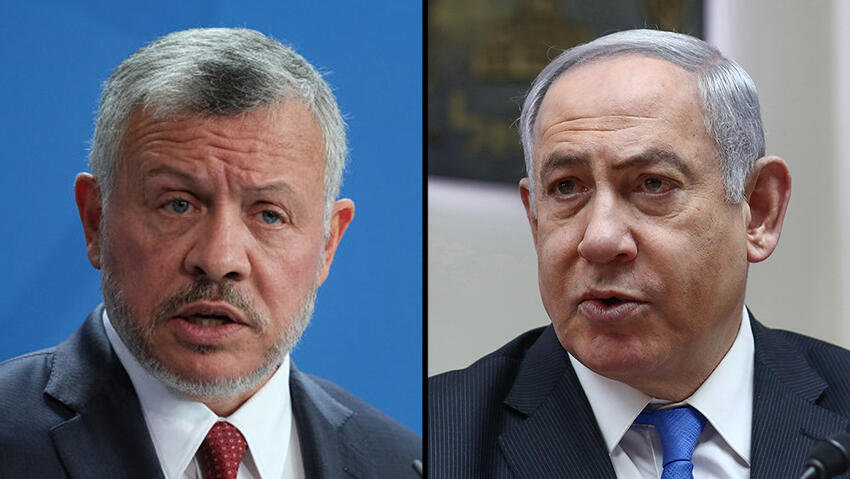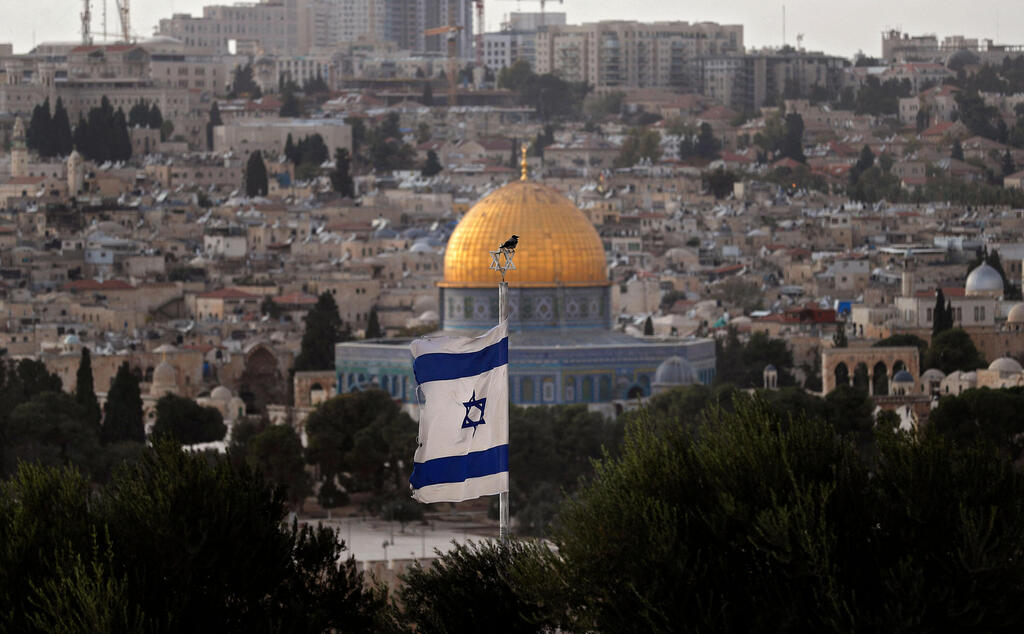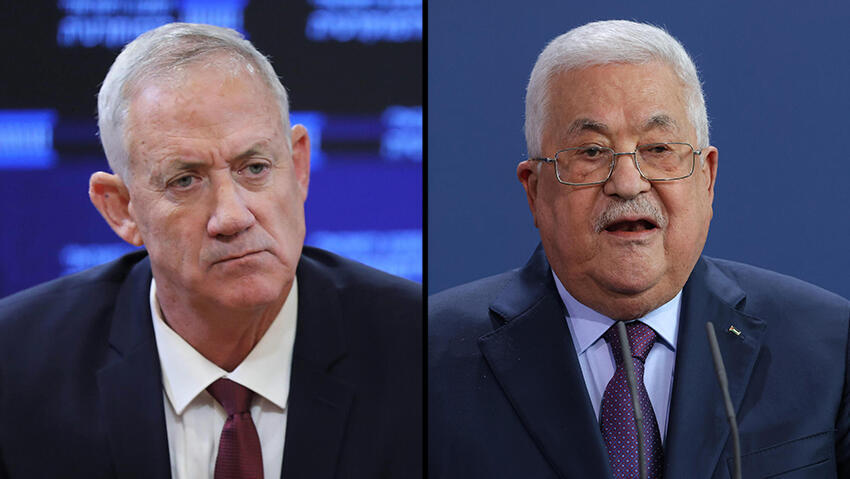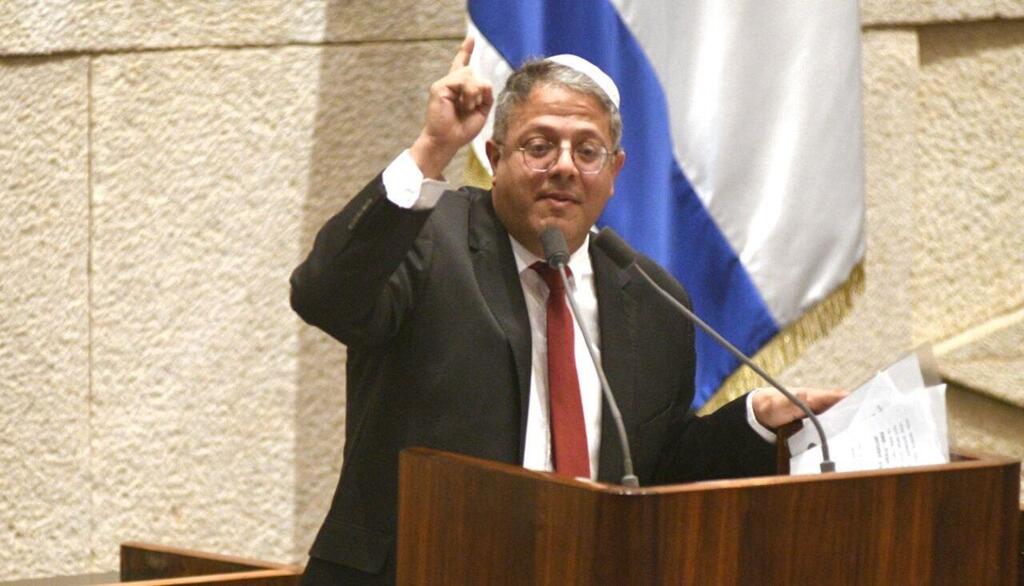Before Israel's new right-wing government is sworn-in, King Abdullah II of Jordan has made his concern clear: The status quo at the Temple Mount must be maintained.
In a sit-down interview with CNN's Becky Anderson, the Jordanian Monarch stressed the issue of Jerusalem and the holy sites that could possibly be compromised by Otzma Yehudit Chairman and incoming National Security Minister Itamar Ben-Gvir and his cohorts in the new government.
In his latest speech before the United Nations, King Abdullah said "Jerusalem is of urgent concern. Undermining Jerusalem's legal and historical status quo triggers global tensions."
In the CNN interview, he was just as resolute. "Jerusalem is a city that is supposed to bring us all together but extremists on all sides create conflict. The violence really did pick up in the spring," he said.
Speaking of the presence of Arab Christians in Jerusalem, he said: "My concern is there are challenges that they are facing from policies on the ground. If we continue to use Jerusalem as a soapbox, things could get out of control pretty quickly. We are fortunate to have in Jerusalem the oldest Arab-Christian community in the world. In recent years they've come under pressure."
Reverting back to the Israeli-Palestinian conflict, Abdullah was asked how worried he was about what was to come. "We have to be worried about the next Intifada," he said. "Neither the Israelis nor the Palestinians will benefit from it."
Regarding the incoming government and Netanyahu's return to power, he said: "End of the day, the Israelis have the right to choose who will lead them. We're all big boys here and we're all prepared to move on. We will work with anybody and everybody as long as we can bring people together. People like those on the far-right in Israel are not just under a Jordanian microscope. They're under an international one."
Reverting to an old joke to make his point, he said: "We've learned living between Iraq and a hard place. If people want to get into a conflict with us, we're quite prepared. I like to look at the glass half full, but we do have red lines. I have to believe that there are a lot of people in Israel who are as concerned as we are.
"There are issues we have to deal with, whether we're Israelis, Palestinians or Jordanians. I believe regional integration is going to be the secret to breaking down barriers. When I'm invested in your success, because your success is my success, at the end of the day it means we can move forward.
"But that's not going to happen unless there's a future for the Palestinians."
Meanwhile, outgoing Defense Minister Benny Gantz spoke to Palestinian Authority President Abbas on Wednesday. Reportedly, Gantz stressed the importance of the bilateral ties that have been built in recent years between Israeli security forces and the Palestinian Authority, and urged to keep an open channel of communication to sustain those ties.
Additionally, Gantz said that unilateral moves against Israel, like the ones the PA is trying to advance in the UN, will undermine relations and security coordination between the two sides.
Ben-Gvir's accession to power also raises concerns about tensions simmering around the Temple Mount as the incoming police minister expressed many times in the past his belief Jews must be allowed to pray freely on Temple Mount. In a closed-off area, shoulder-to-shoulder with apprehensive Muslims, some fear this could lead to these tensions boiling over and possibly leading to a third Intifada. While Netanyahu and other members of his incoming government stated there will be no changes to the status quo in Jerusalem, the Temple Mount was not specifically mentioned.
Relations between Israel and Jordan have seen ebbs and flows throughout the years.
In 2017, an Israeli security guard killed a Jordanian man who stabbed him at the entrance to the Israeli embassy in Amman. Another Jordanian bystander was accidentally shot and killed in the altercation. All Israeli personnel inside the embassy were instructed not to leave.
While the situation was eventually solved via diplomatic channels, a widely shared photo of the security guard being embraced by Netanyahu upon his return to Israel caused an uproar in Jordan.
After that incident, three Muslims killed two Israeli security guards on the Temple Mount, which prompted Israel to place metal detectors at the entrances to the holy site, a move that did not sit well with Mohammad Ahmad Hussein, the Mufti of Jerusalem, who instructed Muslims coming to the site not to go through the metal detectors, further enflaming tensions.
With Netanyahu affirming his wish to strengthen West Bank settlements, Palestinian Deputy Prime Minister Nabil Abu-Rudeineh said that it stands in contrast to international law and that Israel must adhere to UN resolutions.





